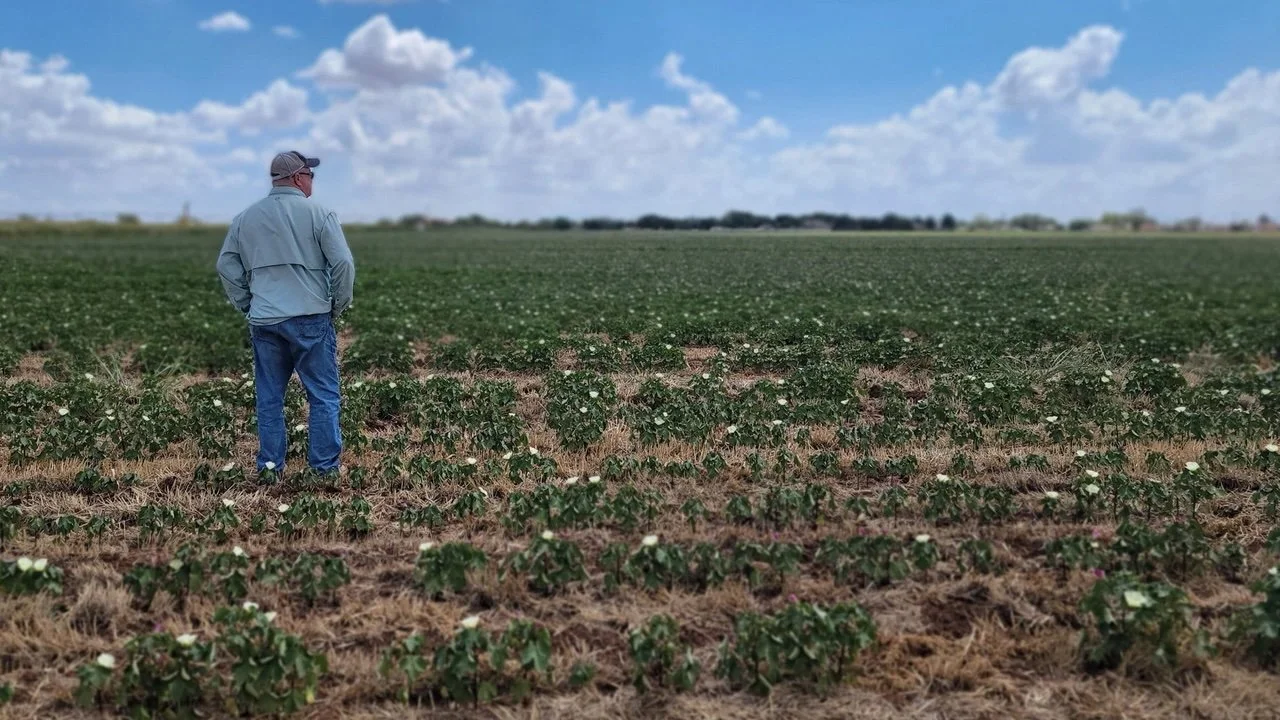Time is running out for Congress to agree on the new farm bill, now a year overdue, but a “common sense, reasonable, practical” package is still possible, said Agriculture Secretary Tom Vilsack on Tuesday, declaring himself an optimist. “I think there’s better odds than not that we get it done,” he said at a White House conference.
Read MoreAfter having been initially extended last year until the end of fiscal 2024, the 2018 Farm Bill has expired. Many are wondering what lies in store for both farm and nutrition programs? A Farm Bill that expires is not quite the aberration some would take it to be. When the 2002 Farm Bill expired, portions of it were extended six times in the spring of 2008 for less than a year in total, according to the Congressional Research Service (CRS).
Read MoreAn important deadline for congress has passed.
On Sept. 30, the current farm bill expired, leaving many in the agriculture industry concerned about what the future holds.
“Farmers aren’t going to stop working. We can’t this isn’t a wait and see type of deal. Lawmakers have that luxury. Farmers do not,” said farmer Brandon Vail.
Read MoreThe future of American farming is at a critical crossroads as a key piece of legislation, the 2018 Farm Bill, expired on September 30, 2024, leaving farmers across the country anxious about their financial survival.
Allen McLain, a second-generation rice farmer in Vermilion Parish, said the current farm bill—originally passed six years ago—is no longer adequate to address the economic challenges facing today’s farmers.
Read MoreOver the past two years, Congress has held numerous hearings that have documented a brewing financial crisis caused by falling commodity prices, high input costs, and tightening farm credit. Members have heard from farmers and ranchers across the country about the need for a new Farm Bill. Now, it’s time for Congress to act. Waiting would be a mistake.
I was the chief economist at the Department of Agriculture when the last farm bill was written and saw firsthand the impacts on our agricultural and food system caused by the changing climate, a trade war, and a global pandemic.
Read MoreOn a recent fall day, as Wilburn Harris did the rounds on his cattle farm in the Missouri town of Drexel, he was met with brown grass, cracked soil and half-empty ponds.
He was used to it. Last year’s drought was so bad, he had to haul water and hay to his farm to keep the animals fed and watered.
Read MoreCongress’ inability to pass a new farm bill before the end of the current fiscal year on Sept. 30 could have an impact on more areas of farm programs than just the low reference prices in the current law.
Producers will stop receiving payments when they run up against the life-of-farm bill payment limits on the Conservation Stewardship, Environmental Quality Incentives and other popular conservation and price support programs in the new fiscal year.
Read MoreLouisiana farms are facing another year of losses in 2024, according to the LSU AgCenter. Those losses would continue in 2025 if Congress does not pass a new Farm Bill this year.
Ag Economist Michael Deliberto, Ph.D. calculated with current commodity prices, production costs and price supports, a 1,500-acre farm would end 2024 with $306,097.50 in losses. A 2,000-acre farm would fare considerably worse with a balance sheet ending in 2024 with $564,482.50 in losses.
Read MoreYesterday marked the expiration of the one-year extension of the 2018 farm bill, leaving farmers and ranchers anxious about whether Congress can secure a new, five-year reauthorization. Despite Congress giving themselves a full extra year to craft and pass a new farm bill, inaction remains the status quo in the halls of Congress.
Read MoreOver the last two weeks, row crop producers descended on the nation’s capital, lobbying for passage of a new farm bill and highlighting the need for ad hoc disaster assistance.
If you do not personally live with the constant barrage of challenges facing our nation’s farmers and ranchers – ranging from droughts, wildfires, and hurricanes to inflation and market collapses – it’s easy to grow numb to their plight. Besides, aren’t farmers and ranchers always on Capitol Hill asking for assistance?
Read MoreU.S. Senator John Boozman (R-AR), ranking member of the U.S. Senate Committee on Agriculture, Nutrition, and Forestry, called for Congress and the administration to provide a “timely and urgent response” to the looming farm crisis in the form of emergency assistance to farmers and called for a redoubling of efforts to pass a farm bill before the end of the calendar year in a speech on the Senate floor.
On emergency assistance, Boozman said, “Farmers across the country need a bridge to help their family farms survive into next year. We’ve seen previous ad-hoc assistance programs established in a period of weeks, as demonstrated by then Secretary [Sonny] Perdue when the COVID-19 pandemic created disruptions for producers. That level of timely and urgent response by Congress and the administration is once again warranted.”
Read MoreWith elections looming, the Congressional calendar is tight. Right now, Congress is locked in a funding battle. Emily Buckman, director of government affairs for the American Farm Bureau Federation, says the deadline is quickly approaching.
Read MoreMore than 300 ag groups are calling on Congress to pass a Farm Bill before year’s end, underscoring the need for a stronger safety net as farmers cope with a number of market hurdles.
Kenny Hartman with the National Corn Growers Association spoke with RFD-TV’s own Tammi Arender on the need for an updated bill, if an extension will pass by the end of the year, and the importance of a strong ag safety net.
Read MoreUSA Rice, all state rice organizations, and nearly 300 other agricultural groups sent a letter to Congressional leaders: Speaker of the House Mike Johnson (R-LA), House Minority Leader Hakeem Jeffries (D-NY), Senate Majority Leader Chuck Schumer (D-NY), and Senate Minority Leader Mitch McConnell (R-KY) calling for action on a meaningful Farm Bill reauthorization before the end of the year.
Read MoreAmerican Farm Bureau Federation President Zippy Duvall commented on USDA’s net farm income data, which shows a 23% drop in on-farm income since 2022.
"The drop in net farm income is not just an economic hiccup, it’s evidence of an agricultural downturn. High inflation, severe weather and plummeting crop prices should serve as a wake-up call for Congress to finally step up and do the right thing by modernizing the farm bill.
Read More













